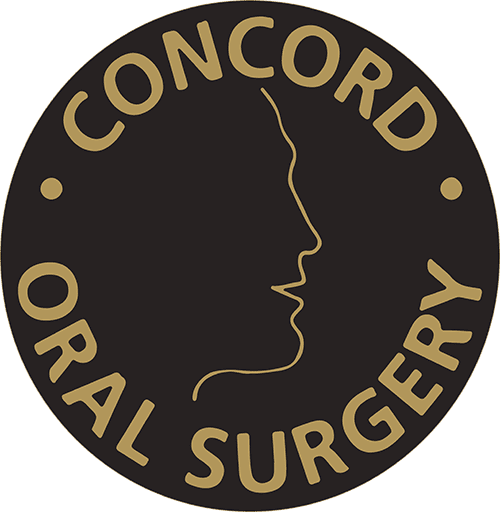Reviewed By Dr. Robert Barron, DMD
Reading Time: 3 minutes
Eating the wrong food after oral surgery can delay the healing process, cause pain, or even lead to complications like dry sockets or risk of infections.
This blog explains what types of food can disrupt your recovery, what foods to avoid after oral surgery, and what nutrient-rich foods to eat instead.
You will learn how to protect your tooth socket, maintain healthy blood clotting, and make food choices that support proper healing and a smooth recovery.
Table of Contents
Key Takeaway
Avoid crunchy foods, spicy foods, acidic foods, sticky food, and hot foods after dental surgery. These types of foods disrupt blood flow, delay recovery after wisdom tooth extraction, and raise your risk of complications. Choose soft foods rich in essential nutrients to support proper healing and a speedy recovery.
Why Your Diet Matters After Oral Surgery
The first days after surgery are critical for forming a stable blood clot and beginning tissue repair. Choosing the wrong food can:
- Dislodge the blood clot, increasing the risk of dry sockets
- Irritate gum tissue, slowing the recovery process
- Introduce bacteria, leading to infection of soft tissues
- Disrupt blood flow, especially during healing time
Following a soft food diet filled with essential nutrients helps speed up healing and keeps your mouth healthy.
1. Crunchy and Hard Foods
These types of food can poke the tender gums and get stuck in the tooth socket.
Avoid:
- Crunchy foods like chips and popcorn
- Hard raw vegetables
- Toast or crusty bread
- Nuts and seeds
Eat instead:
- Mashed potatoes
- Cooked vegetables like green beans or soft vegetable medleys
- Pureed soups
- Cream of wheat
2. Hot Foods and Beverages
Hot foods and hot drinks can interfere with blood clotting and increase swelling.
Avoid:
- Hot soups
- Heated leftovers
- Coffee or tea (hot)
Eat instead:
- Cool foods such as ice cream
- Lukewarm broths
- Room-temperature cream of wheat or oatmeal
3. Spicy Foods
Spicy foods aggravate surgical wounds and soft tissues.
Avoid:
- Hot sauce
- Spicy curries
- Chili flakes
Eat instead:
- Mild mashed beans such as refried beans
- Plain couscous or rice
- Soft tofu
4. Acidic Foods and Juices
Acidic foods like citrus fruits can burn the healing area and delay tissue repair.
Avoid:
- Citrus foods like lemons and grapefruit
- Orange juice and lemon juice
- Tomato-based dishes
Eat instead:
- Soft fruits like bananas
- Applesauce
- Cooked squash
5. Sticky and Chewy Foods
Sticky food and chewy foods can pull on stitches or reopen wounds.
Avoid:
- Caramel and taffy
- Gummy candies
- Dried fruits
Eat instead:
- Greek yogurt
- Cottage cheese
- Small servings of creamy peanut butter as a source of protein
6. Sugary and Carbonated Drinks
Sugary foods and carbonated drinks can irritate surgical sites and harm soft tissue.
Avoid:
- Soda and fizzy drinks
- Sugary juices and candies
Drink instead:
- Water
- Herbal tea (room temperature)
- Protein powder shakes with essential vitamins
Additional Tips for Eating After Tooth Extraction Surgery
Eating carefully in the days following surgery can make a big difference in your comfort and recovery. Keep these tips in mind:
- Chew on the opposite side of your mouth to protect the healing area from pressure and irritation.
- Use small utensils or a spoon to help you control your bites and avoid accidentally touching the surgical site.
- Stick to liquids and soft foods for the first few days—solid foods can irritate the area or dislodge the blood clot.
- Rinse gently with warm salt water starting 24 hours after surgery to help prevent infection and keep the area clean.
Always follow the specific post-operative instructions provided by your oral surgeon. These guidelines are tailored to your procedure and play an important role in helping you heal properly.
Book a Consultation at Concord Oral Surgery
Your recovery starts with the right preparation—and that includes knowing what to eat (and what to avoid) after surgery. At Concord Oral Surgery, we’re here to make every step easier, from procedure to healing.
Whether you need a wisdom tooth removed, dental implants placed, or another procedure, we will walk you through your post-op instructions and help you feel confident about your recovery plan.
To book an appointment at our oral surgery office in Vaughan, ON, call (905) 669-2616 or complete the appointment request form. We are located at 3300 Highway 7 West, Suite 805 Vaughan, ON.
FAQs
How soon after oral surgery can I eat regular food?
Most people can slowly return to regular foods about 7 to 10 days after surgery, depending on how well they are healing. It’s important to follow your oral surgeon’s instructions and listen to your body. Start by introducing soft, easy-to-chew foods and wait until your mouth feels ready before eating anything crunchy, hard, or sticky.
Why is day 3 the worst after tooth extraction?
Day 3 is often when inflammation peaks, which can lead to increased swelling, soreness, and stiffness in the jaw. The numbing effects of anesthesia have worn off by this point, and your body is fully engaged in the healing process. This phase is normal and usually short-lived and discomfort typically improves after day 4.
Can you eat scrambled eggs after oral surgery?
Yes, scrambled eggs are an excellent choice after oral surgery. They are soft, easy to chew, and packed with protein, which helps support tissue repair. Just make sure they have cooled down before eating, as hot foods can interfere with blood clotting in the early stages of recovery.
What is the fastest way to recover from oral surgery?
The fastest way to recover is by carefully following your surgeon’s post-operative instructions and giving your body the time and care it needs. Focus on eating soft, nutrient-rich foods, staying hydrated, and getting plenty of rest in the first few days. Avoid strenuous activity, keep the surgical site clean with gentle salt water rinses starting 24 hours after surgery, and steer clear of anything that might disrupt healing, like smoking or drinking through a straw. Supporting your body with good nutrition and proper oral hygiene will help you heal more quickly and comfortably.

